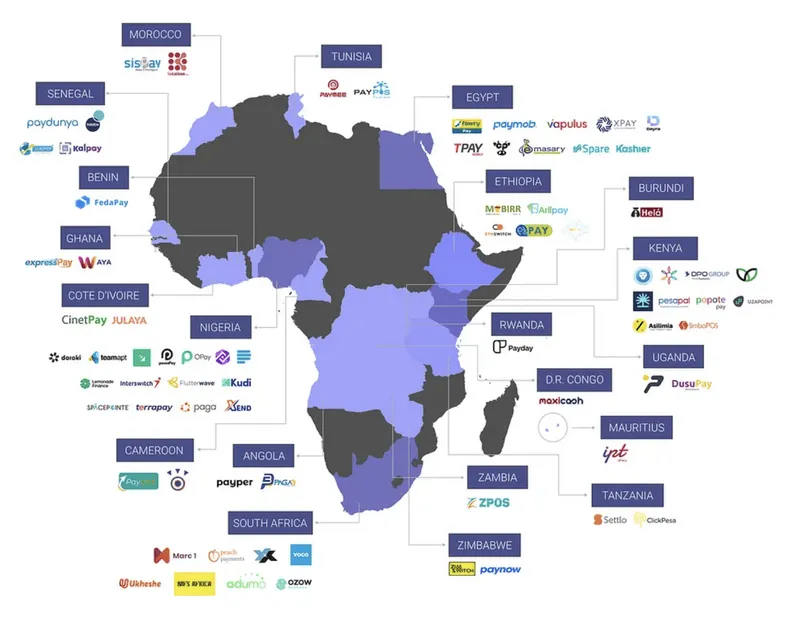Legal Basics for African Startups: Protecting Your Ideas and Innovations

Like everywhere else, startups and businesses in Africa face various challenges when it comes to protecting their ideas and innovations. Without proper legal protections, entrepreneurs risk losing their competitive edge or intellectual property (IP) to competitors. Legal challenges may include weak enforcement of IP laws, complex registration processes, and limited access to legal resources.
It is very important that you understand the basics of intellectual property and legal frameworks, especially in rapidly growing markets.
That’s why we put this guide together – to provides African startups with essential insights on how to protect their ideas. We have covered everything from patents and trademarks to non-disclosure agreements (NDAs) and business structures.
Understanding Intellectual Property (IP)
Intellectual Property (IP) refers to creations of the mind, such as inventions, literary works, symbols, names, and images used in commerce. For startups, protecting these creations is vital, as they can represent a significant portion of a company’s value. IP rights grant legal protection and ensure that others cannot use or exploit your innovations without your permission.
There are four main types of IP:
- Patents, which protect inventions;
- Trademarks, which safeguard brands;
- Copyrights, which cover creative works like music or software; and
- Trade secrets, which protect confidential business information.
For you to build a string legal foundation for growth and innovation, it is important that you understand these types of IP.
Protecting Your Ideas: The Importance of Patents
As an inventor, it’s sad seeing others take credit for your work. A patent grants the inventor or start-up exclusive rights to an invention, preventing others from making, using, or selling the invention without permission for a certain period, typically 20 years. Patents are especially important for startups developing new products or technologies. By securing a patent, startups can protect their innovations and gain a competitive edge in the marketplace.
Startups should consider applying for a patent when they have a novel and useful invention. However, before applying, it is essential to conduct a thorough search to ensure that no similar patents exist. Also, you might have to weigh the costs and benefits, as the patent application process can be complex and expensive.
The application process involves several steps
First, you have to draft a detailed description of the invention. Then, submit the application to the appropriate national or regional patent office. After that, your application undergoes a review process. Once approved, though, you can enforce your rights, ensuring your invention remains protected.
Trademarking Your Brand
Now, let’s talk about trademarks. A trademark is a symbol, word, or phrase that identifies and distinguishes a company’s products or services from those of others. For startups, establishing a unique brand is critical to building recognition and customer trust, making trademark protection essential.
By registering a trademark, startups can legally protect their brand from being used by competitors. Trademarks not only protect logos and names but also slogans, packaging designs, and even sounds or colors associated with a brand. This ensures that a startup’s brand identity remains unique and prevents others from diluting its value.
To register a trademark, you must first conduct a search to confirm that the desired mark is not already in use. Afterward, the application can be submitted to the relevant trademark office, such as the African Regional Intellectual Property Organization (ARIPO). The trademark office will review the application, and once approved, you will have exclusive rights to use the trademark in their region.
Copyrights: Protecting Your Creative Work
Copyrights provide protection for original works of authorship, including written content, music, software, and artistic creations. Startups involved in producing creative materials should ensure their works are legally protected by copyright to prevent unauthorised use or reproduction.
To secure copyright protection, the work must be original and fixed in a tangible form, such as a manuscript, recording, or digital file. Once created, the copyright exists automatically in most countries, but startups may still opt to register their work with a copyright office to strengthen their legal standing in potential disputes.
Registering a copyright typically involves submitting the work and a completed application form to the appropriate copyright office. Copyright protection lasts for the creator’s lifetime plus a set period (e.g., 50 to 70 years depending on jurisdiction).
Understanding Non-Disclosure Agreements (NDAs)
A Non-Disclosure Agreement (NDA) is a legal contract that ensures confidential information shared between two parties is not disclosed to unauthorised individuals. For startups, NDAs are crucial when collaborating with investors, partners, or employees, as they protect sensitive business information.
Startups should use NDAs when sharing proprietary information, business strategies, or product plans with potential collaborators. NDAs help prevent the misuse of valuable intellectual property, ensuring that your ideas are not exploited without consent.
A well-drafted NDA should clearly define what information is considered confidential, the obligations of the receiving party, and the consequences of violating the agreement. This legal tool is essential in safeguarding the sensitive information that gives startups their competitive advantage.
Navigating Business Structures and Compliance
The choice of a business structure can significantly impact a startup’s legal protection and growth. Common structures include Limited Liability Companies (LLCs), corporations, and sole proprietorships. Each structure offers different levels of liability protection, tax implications, and management flexibility.
For instance, an LLC offers personal liability protection for owners, meaning their personal assets are protected from business debts. Corporations, while more complex to manage, provide even greater protection and can attract investors. Startups need to carefully choose the structure that best suits their goals.
In addition to selecting the right business structure, startups must comply with local regulations, including licensing, tax registration, and employee laws. Failing to meet compliance requirements can lead to legal penalties and disrupt business operations.
Conclusion
Proactive legal planning is essential for startups, especially in competitive markets. By protecting intellectual property and choosing the right business structure, startups can safeguard their innovations and build a strong foundation for growth. Whether through patents, trademarks, copyrights, or NDAs, startups must take the necessary steps to secure their ideas from exploitation.
Entrepreneurs should also consult with legal professionals to ensure all legal bases are covered. Taking these first steps early on can help avoid costly legal battles and provide startups with the peace of mind they need to focus on innovation and growth.










